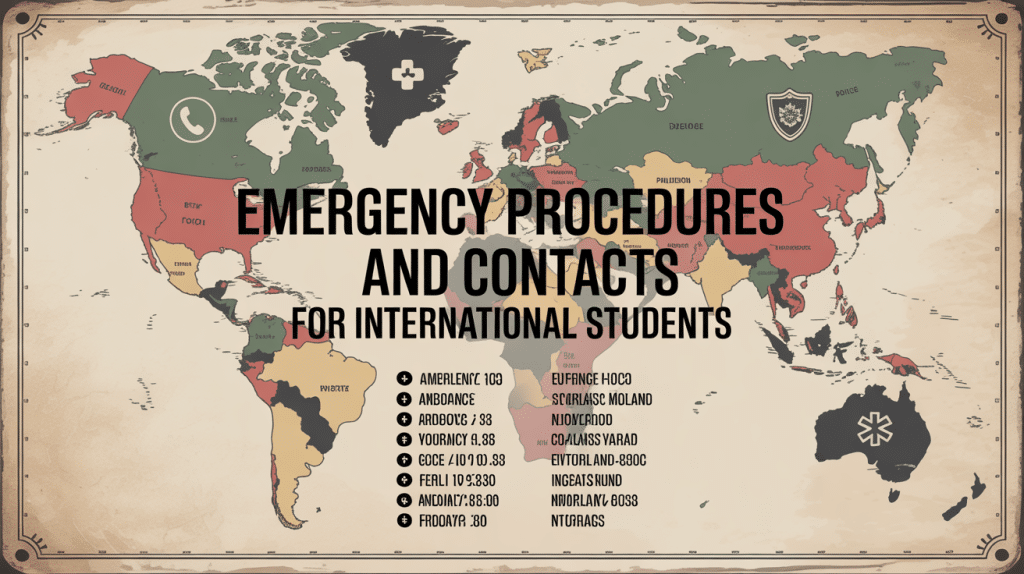Emergency Procedures and Contacts at Turkish Universities
Emergency and Disaster Management Programs |
Key Emergency Contacts and Resources |
Practical Emergency Preparedness Tips |
Conclusion
University Emergency Response Systems
Turkish universities have invested heavily in crafting robust emergency response mechanisms. These systems are designed to respond promptly and effectively in crises, ensuring the safety and well-being of all students.
Key Features of Emergency Response Systems
- Dedicated Emergency Management Offices: Most Turkish universities maintain distinct departments that focus solely on emergency management. These offices are responsible for formulating and executing emergency response plans, providing support to students during incidents.
- Effective Communication Protocols: Universities have implemented clear communication strategies to alert students of emergencies. These may include SMS alerts, emails, and announcements, ensuring timely information dissemination.
- Safety Advisories: Students are encouraged to stay informed about health and safety advisories that pertain to their specific locations, especially in light of potential natural disasters or public health concerns.
Importance of Awareness
Being aware of your surroundings and understanding the protocols at your chosen university is crucial. Students should familiarize themselves with the emergency guidelines available on their university’s official channels, promoting a culture of preparedness.
Emergency and Disaster Management Programs
In line with Turkiye’s commitment to emergency preparedness, many universities offer specialized programs in Emergency and Disaster Management. These programs equip students with the necessary skills to handle crises effectively.
Curriculum Focus Areas
- Crisis and Disaster Management: Understanding the frameworks used to manage various emergencies.
- Psychological and Neurological Emergencies: Preparing students to address mental health crises effectively.
- Maternal and Neonatal Emergencies: Training professionals to respond to specific health crises.
- Environmental Toxicology: Educating on the identification and management of environmental hazards.
Example Institutions Offering Such Programs
Hands-On Training
Practical training is a hallmark of these programs. Students may engage in simulations and drills, allowing them to apply their theoretical knowledge in practical settings.
Key Emergency Contacts and Resources
To ensure student safety, it is vital that international students familiarize themselves with key emergency contacts at their institutions. These resources typically include:
- Campus Security Contact Numbers: Always have your university’s police or security number readily available.
- Medical Emergency Services: Details on how to contact local emergency medical services.
- AFAD Contacts: The Presidency of Disaster and Emergency Management Authority (AFAD) plays an integral role in coordinating disaster management efforts across Turkiye.
- University Health Centers: Most universities have health facilities that provide immediate first aid and emergency care.
Example Resources at Notable Universities
Practical Emergency Preparedness Tips
International students should take proactive steps to ensure their safety while studying in Turkiye. Here are some recommended practices:
- Save Emergency Contact Numbers: Keep a list of important contact numbers accessible on your phone.
- Know Your Evacuation Routes: Familiarize yourself with the evacuation plans for your dormitory, classrooms, and campus buildings.
- Participate in Drills: Engage in any emergency drills organized by your university to practice your response.
- Learn Basic Turkish Phrases: Knowing emergency phrases can aid in communication during a crisis.
- Keep Documentation Accessible: Ensure that identification, health insurance, and emergency contact details are easily reachable in case of an incident.
By understanding and adhering to these emergency procedures, international students can significantly enhance their safety while pursuing their studies in Turkiye.
Conclusion
Navigating the academic landscape in Turkiye involves not only engaging with your studies but also understanding the critical emergency procedures and contacts that safeguard your educational journey. By being aware of your university’s emergency response systems, participating in relevant programs, and adhering to practical safety tips, you will contribute to a safer campus environment.
For international student recruiters, university admissions teams, and agencies working in student placement, comprehensively presenting these emergency measures will underline the importance of student safety in attracting prospective students to study in Turkiye.
Should you seek further insights on studying in Turkiye, feel free to reach out. We are committed to supporting your journey and ensuring your safety and success throughout your educational experience.
Take the Next Step with Study in Turkiye
Explore further opportunities to enhance your educational journey in Turkiye.

